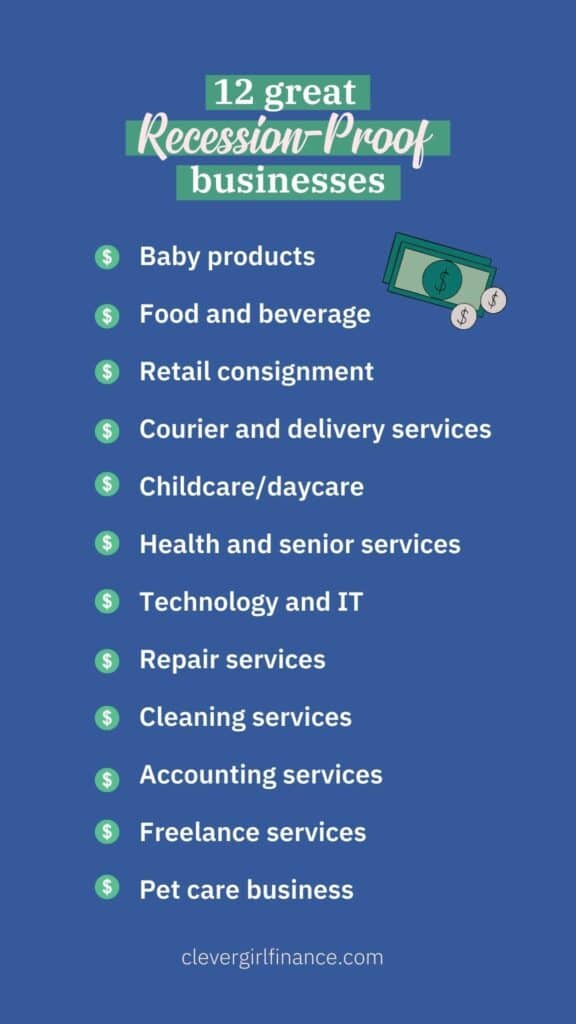
Investing in retail REITs provides the opportunity to own shopping malls, outlet centers, and supermarkets. This sector can yield a high level of return and a steady income. You should be aware that these investments come with risks.
There are many retail REITs available. Most focus on one particular type of property or tenant. Simon Property Group, for instance (SPRG), owns over 190,000,000 square feet worth of retail space. Their stocks have seen steady growth over the last several years, primarily due to the national increase in rent prices.
Retail REITs face the most difficult challenge of finding new tenants. This is not an easy process, especially in an economy where many brick and mortar stores are closing their doors. Retailers must be able to afford their rent to succeed. This can be challenging in a poor economy where consumers are constantly looking for the lowest prices.

Also, REITs face rising interest rates. This can have an effect on stock prices, but can also increase the income yield on bonds. In addition, it can make it difficult for businesses to borrow. This can lead to a decline in retail REIT stock price, particularly if interest rates rise.
Other factors that impact retail REITs include the economic downturn as well as the rise in eCommerce. Retail stores that are unable to compete with low prices in a recession might be unable to survive.
Renting income from tenants is the best indicator of REIT viability. An REIT must also have good access to credit financing and a high investment grade rating. The best retail REITs are able to capitalize on a weak economy, regardless of the risks.
Although retail REITs are making every effort to generate revenue, it is important to understand what might happen if there is a recession. Retailers may need to file for bankruptcy if they are unable pay their rent. In addition, lower occupancy rates could be caused by a recession.

Another good indicator of a retail REIT's profitability is the size of its cash position. Reit's with large cash reserves can purchase distressed properties at good prices. But, this also means the company may have less liquidity. This can make it more volatile.
It is crucial to choose the right REIT, since asset quality can differ from one company. Other REITs might be more aggressive. The key is to choose a REIT that has a high payout ratio, but offers a high yield that will compensate investors for their higher risk profile.
Retail REITs offer investors the chance to own shopping malls and supermarkets at a much lower price than buying the property. While retail REITs are often resistant to recessions investors must weigh the potential risks and rewards before making any investment decisions.
FAQ
Who can trade on the stock market?
The answer is yes. Not all people are created equal. Some have greater skills and knowledge than others. They should be rewarded.
However, there are other factors that can determine whether or not a person succeeds in trading stocks. You won't be able make any decisions based upon financial reports if you don’t know how to read them.
So you need to learn how to read these reports. Understanding the significance of each number is essential. Also, you need to understand the meaning of each number.
This will allow you to identify trends and patterns in data. This will allow you to decide when to sell or buy shares.
If you are lucky enough, you may even be able to make a lot of money doing this.
What is the working of the stock market?
You are purchasing ownership rights to a portion of the company when you purchase a share of stock. A shareholder has certain rights over the company. He/she can vote on major policies and resolutions. The company can be sued for damages. He/she also has the right to sue the company for breaching a contract.
A company cannot issue any more shares than its total assets, minus liabilities. This is called capital sufficiency.
A company with a high capital adequacy ratio is considered safe. Companies with low ratios of capital adequacy are more risky.
What are the benefits to investing through a mutual funds?
-
Low cost – buying shares directly from companies is costly. It's cheaper to purchase shares through a mutual trust.
-
Diversification - most mutual funds contain a variety of different securities. If one type of security drops in value, others will rise.
-
Professional management - Professional managers ensure that the fund only invests in securities that are relevant to its objectives.
-
Liquidity is a mutual fund that gives you quick access to cash. You can withdraw your money whenever you want.
-
Tax efficiency - mutual funds are tax efficient. As a result, you don't have to worry about capital gains or losses until you sell your shares.
-
Buy and sell of shares are free from transaction costs.
-
Mutual funds are simple to use. You will need a bank accounts and some cash.
-
Flexibility – You can make changes to your holdings whenever you like without paying any additional fees.
-
Access to information: You can see what's happening in the fund and its performance.
-
Investment advice - you can ask questions and get answers from the fund manager.
-
Security - You know exactly what type of security you have.
-
Control - The fund can be controlled in how it invests.
-
Portfolio tracking - You can track the performance over time of your portfolio.
-
Easy withdrawal: You can easily withdraw funds.
There are disadvantages to investing through mutual funds
-
Limited investment options - Not all possible investment opportunities are available in a mutual fund.
-
High expense ratio: Brokerage fees, administrative fees, as well as operating expenses, are all expenses that come with owning a part of a mutual funds. These expenses can impact your return.
-
Lack of liquidity - many mutual funds do not accept deposits. These mutual funds must be purchased using cash. This limits the amount of money you can invest.
-
Poor customer support - customers cannot complain to a single person about issues with mutual funds. Instead, you need to contact the fund's brokers, salespeople, and administrators.
-
Risky - if the fund becomes insolvent, you could lose everything.
How are securities traded?
The stock market is an exchange where investors buy shares of companies for money. In order to raise capital, companies will issue shares. Investors then purchase them. Investors then resell these shares to the company when they want to gain from the company's assets.
The price at which stocks trade on the open market is determined by supply and demand. The price goes up when there are fewer sellers than buyers. Prices fall when there are many buyers.
There are two options for trading stocks.
-
Directly from company
-
Through a broker
What is the difference of a broker versus a financial adviser?
Brokers are people who specialize in helping individuals and businesses buy and sell stocks and other forms of securities. They handle all paperwork.
Financial advisors are specialists in personal finance. They use their expertise to help clients plan for retirement, prepare for emergencies, and achieve financial goals.
Banks, insurance companies or other institutions might employ financial advisors. They may also work as independent professionals for a fee.
Take classes in accounting, marketing, and finance if you're looking to get a job in the financial industry. It is also important to understand the various types of investments that are available.
What are the advantages to owning stocks?
Stocks are more volatile than bonds. The stock market will suffer if a company goes bust.
However, if a company grows, then the share price will rise.
In order to raise capital, companies usually issue new shares. This allows investors to buy more shares in the company.
Companies use debt finance to borrow money. This gives them access to cheap credit, which enables them to grow faster.
When a company has a good product, then people tend to buy it. As demand increases, so does the price of the stock.
As long as the company continues producing products that people love, the stock price should not fall.
Why is a stock called security.
Security is an investment instrument whose value depends on another company. It can be issued as a share, bond, or other investment instrument. The issuer promises to pay dividends and repay debt obligations to creditors. Investors may also be entitled to capital return if the value of the underlying asset falls.
Statistics
- For instance, an individual or entity that owns 100,000 shares of a company with one million outstanding shares would have a 10% ownership stake. (investopedia.com)
- Our focus on Main Street investors reflects the fact that American households own $38 trillion worth of equities, more than 59 percent of the U.S. equity market either directly or indirectly through mutual funds, retirement accounts, and other investments. (sec.gov)
- US resident who opens a new IBKR Pro individual or joint account receives a 0.25% rate reduction on margin loans. (nerdwallet.com)
- Even if you find talent for trading stocks, allocating more than 10% of your portfolio to an individual stock can expose your savings to too much volatility. (nerdwallet.com)
External Links
How To
How to Trade in Stock Market
Stock trading involves the purchase and sale of stocks, bonds, commodities or currencies as well as derivatives. Trading is a French word that means "buys and sells". Traders purchase and sell securities in order make money from the difference between what is paid and what they get. It is one of oldest forms of financial investing.
There are many ways you can invest in the stock exchange. There are three basic types: active, passive and hybrid. Passive investors do nothing except watch their investments grow while actively traded investors try to pick winning companies and profit from them. Hybrid investors combine both of these approaches.
Passive investing involves index funds that track broad indicators such as the Dow Jones Industrial Average and S&P 500. This method is popular as it offers diversification and minimizes risk. You can simply relax and let the investments work for yourself.
Active investing is about picking specific companies to analyze their performance. Active investors will analyze things like earnings growth rates, return on equity and debt ratios. They also consider cash flow, book, dividend payouts, management teams, share price history, as well as the potential for future growth. Then they decide whether to purchase shares in the company or not. If they feel the company is undervalued they will purchase shares in the hope that the price rises. On the other hand, if they think the company is overvalued, they will wait until the price drops before purchasing the stock.
Hybrid investments combine elements of both passive as active investing. A fund may track many stocks. However, you may also choose to invest in several companies. This would mean that you would split your portfolio between a passively managed and active fund.